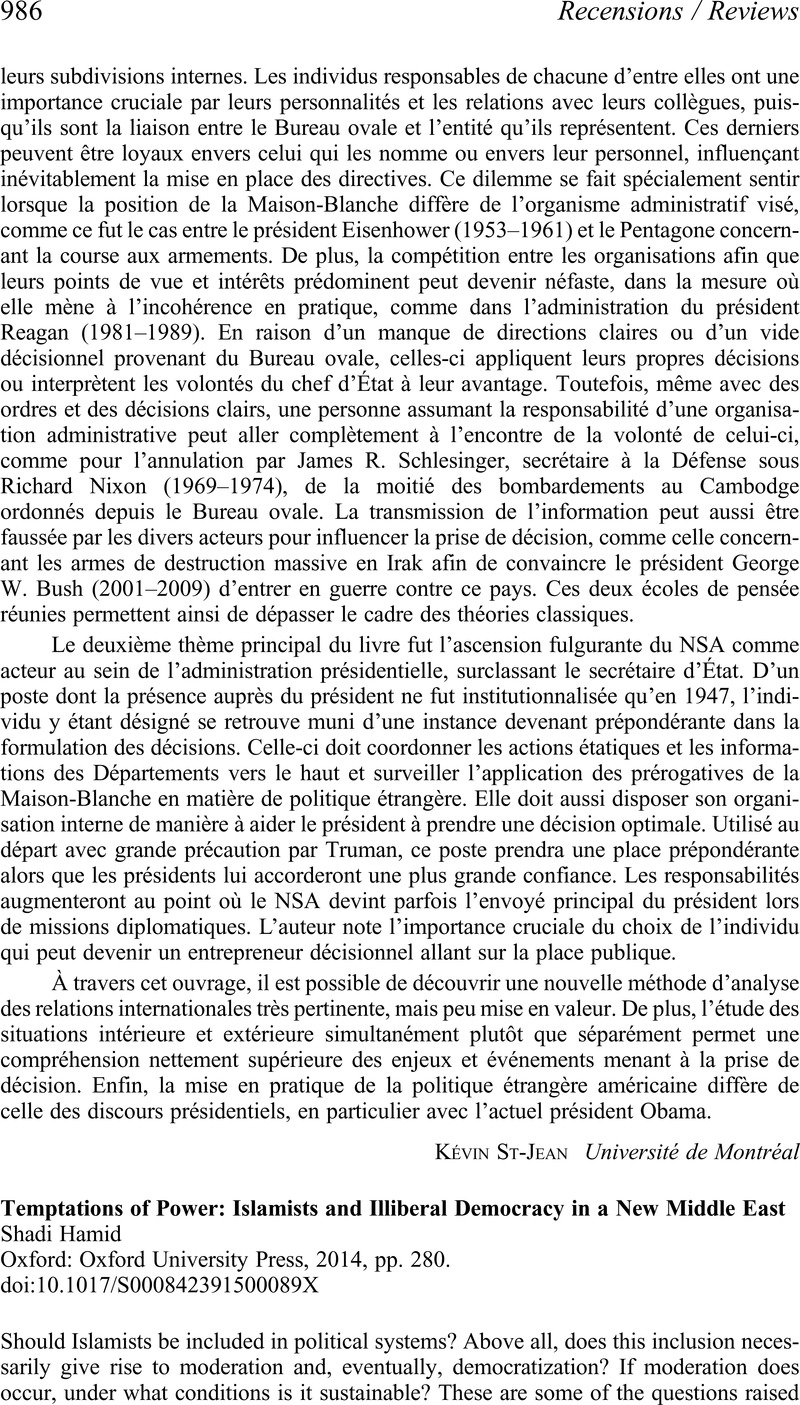No CrossRef data available.
Published online by Cambridge University Press: 29 April 2016

1 This theory states that Islamists, once in power, must fulfil the demands of their constituents and deliver services, such as repairing potholes in the streets; hence they have little time for ideology political rigidity, and radicalism. For a detailed analysis, see Sheri Berman (2008., “Taming Extremists Parties: Lessons from Europe,” Journal of Democracy 19 (1): 5–18 CrossRefGoogle Scholar).
2 Jilian Schwedler, Faith in Moderation : Islamist Parties in Jordan and Yemen, New York : Cambridge University Press, 2006.
3 “Democracy opens the door to the proliferation of Islamist parties, which outbid each other over who can be more “Islamic.” Because democracy is, in part, about responsiveness, Islamist groups simply cannot afford to alienate conservative constituencies that would like to see more Islam in the public sphere, rather than less” (171–72)
4 Strangely, the author does admit to the growing role of Qatar and Saudi Arabia. He says, “During Morsi's tenure, Qatar became the single largest contributor of financial assistance of Egypt, providing about $8 billion in loans and grants (with Turkey offering $2 billion). Just days after the military made its move, it was Saudi Arabia, the United Arab Emirates, and Kuwait, which pledged $12 billion to the new army-appointed government, providing a crucial economic lifeline“(215).